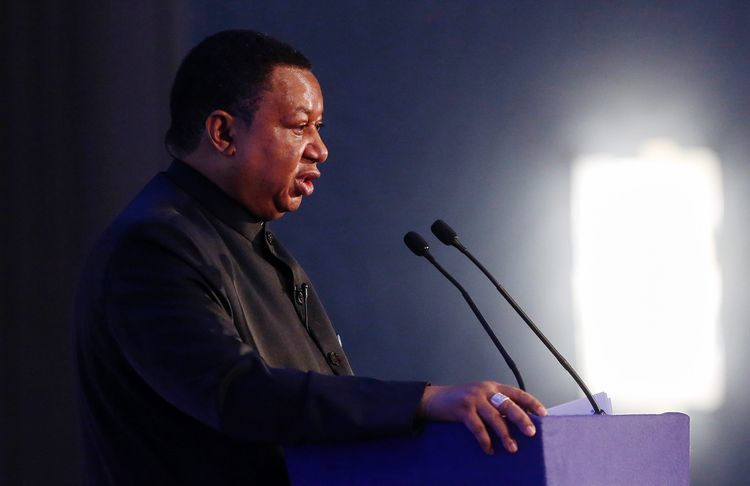
Oil-producing nations are moving closer toward ending a global glut and re-balancing the crude market, and OPEC will decide next month whether to extend its cuts in output beyond June, the group’s Secretary-General Mohammad Barkindo said.
The Organization of Petroleum Exporting Countries and other major producers are committed to reducing oil stockpiles, and all countries participating in a six-month deal to pare output are committed to restoring the market’s stability, Barkindo said at a conference in Abu Dhabi. OPEC will decide at a meeting on May 25 whether to prolong the cuts it pledged to make starting in January, he said.
“We are optimistic the policy measures have already placed us on the path of recovery,” Barkindo said in a speech. “Our collective action will continue to prove effective.”
OPEC and several other producers including Russia agreed in December to pump less oil in an orchestrated effort to end an oversupply weighing on prices. Compliance with the cuts was more robust in March compared to the previous month, Barkindo said. Brent crude has gained about 19 percent since OPEC decided to pare output, and the benchmark grade was 24 cents higher at $55.13 a barrel at 11:59 a.m. in London.
It would be premature to talk about the participation of OPEC members Iran, Nigeria and Libya in any extension of output limits, Barkindo and United Arab Emirates Energy Minister Suhail Al Mazrouei said at the conference. OPEC exempted Nigeria and Libya from cutting production, due to their internal conflicts. The group agreed to let Iran pump an additional 90,000 barrels a day to reach output of about 3.8 million as the country recovers from sanctions.
Iran will probably be allowed to keep production unchanged if OPEC decides to extend its limits beyond the first half of the year, Kuwaiti Oil Minister Issam Almarzooq said in an interview in Abu Dhabi, the U.A.E. capital.
“I think they will keep the same level if the deal is extended,” Almarzooq, who heads the committee monitoring compliance with the cuts, said on the sidelines of the conference. Kuwait was the first country to call for extending production cuts beyond June. Oil prices will increase as demand improves and chips away at inventories in the second half, he said.
Iran is showing “good cooperation” under the deal, Almarzooq said. “They are not cutting, but they aren’t increasing output from what was agreed on.”
OPEC’s compliance with the pledged cuts improved to 104 percent in March from 90 percent in February, while the rate for non-OPEC producers in the accord rose to 64 percent from 38 percent over the same two months, the International Energy Agency said in an April 13 report. OPEC’s average compliance for 2017 is 99 percent, the IEA said.
Recommended for you
